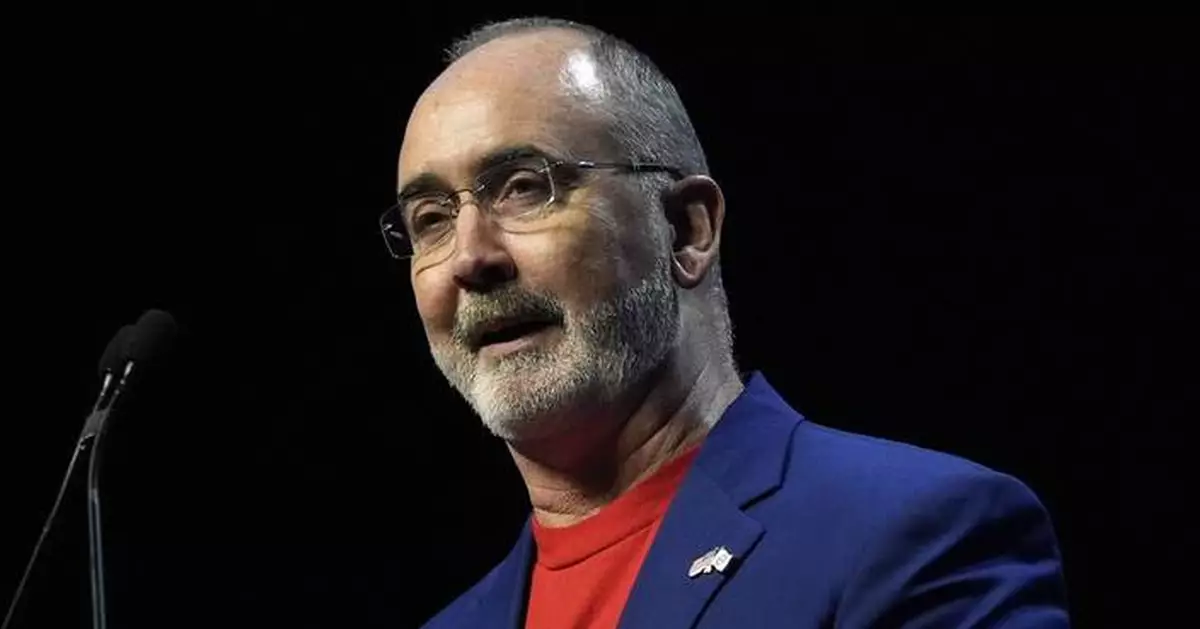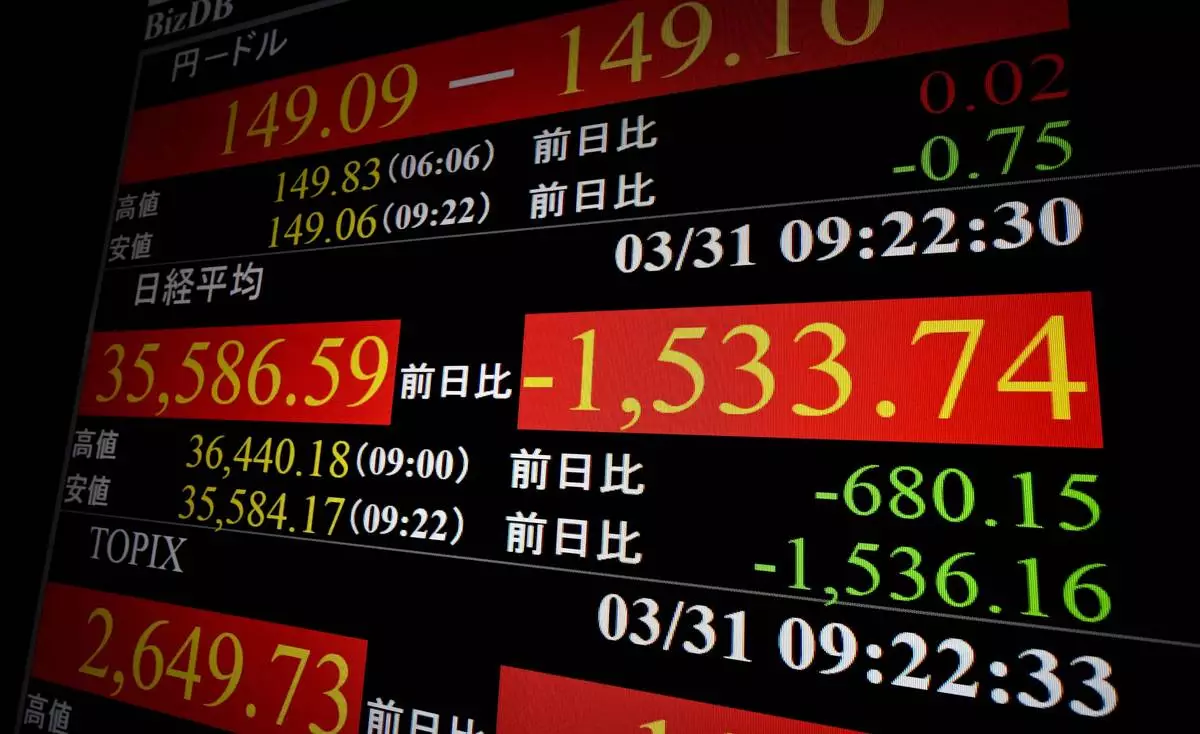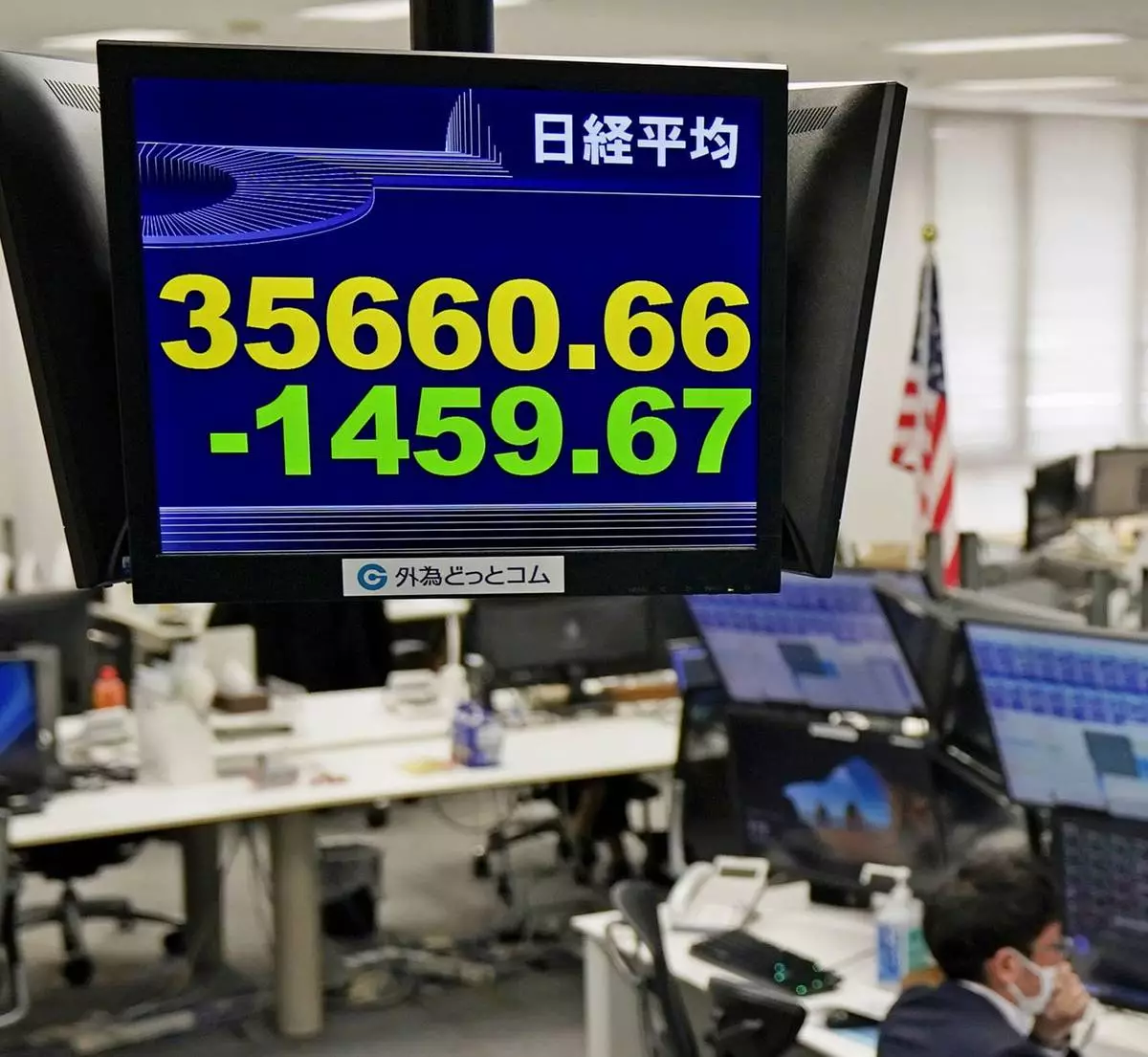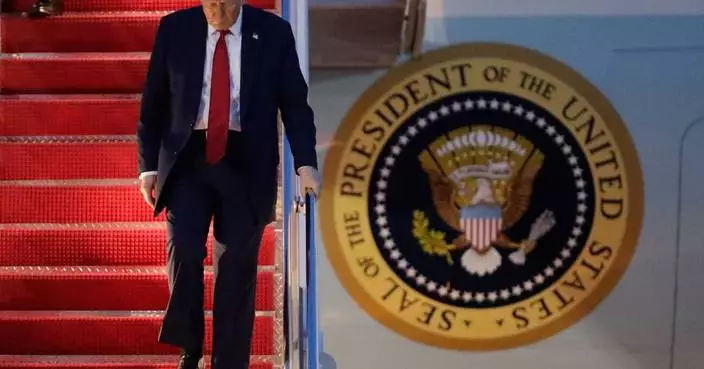WASHINGTON (AP) — President Donald Trump has once again scrambled the politics of organized labor and the working class with his planned tariffs on auto imports.
The White House is eagerly promoting supportive comments from the nation’s top auto worker union leader, a previous Trump critic who endorsed Democrat Kamala Harris over Trump in 2024. At least a few Democrats from auto-producing states have joined their Republican colleagues in applauding the tariffs that Trump casts as a long-term jobs boost for U.S.-based auto production. Other Democrats, meanwhile, have blasted Trump’s policy, warning that a trade war will drive up inflation and raise costs for all Americans.
Long-term consequences from Trump’s planned 25% tariffs on imported vehicles remain unclear, as does the fallout from additional tariffs he has announced on products coming from Canada, Mexico, China and other U.S. trading partners. But the latest political uproar highlights the ongoing effort by the Republican president to reorient party alliances and voter loyalties in ways that not only explain his 2024 comeback but could reverberate into the 2026 midterms and beyond.
In praising the Trump administration's tariff plan, United Auto Workers President Shawn Fain asserted the union's independence.
“The UAW, and the working class in general, couldn’t care less about party politics,” Fain said.
Fain, who announced UAW’s endorsement of Harris over Trump last year by declaring Trump to be “all talk” on labor issues, hailed his administration this week "for stepping up to end the free-trade disaster that has devastated working-class communities for decades.”
That turnabout wasn't lost on White House Press Secretary Karoline Leavitt, who declared Thursday that the president's new tariffs “are a big deal for auto workers in the industry.”
Fain, she noted, “wasn’t the greatest fan of the president on the campaign trail.”
That may have understated the union leader's criticisms.
“When Donald Trump was in office,” Fain had said then, “he did nothing to help the American auto worker.”
Michigan Rep. Debbie Dingell, a Democrat who represents thousands of UAW members in a key presidential swing state, likewise has been a Trump critic but called the tariff’s “a good first step.” She noted, however, that lawmakers are seeking clarification on many details of Trump’s plans.
Organized labor, heavily concentrated in northeastern states and the Great Lakes region, has historically aligned with Democrats, including supporting more protectionist policies like tariffs. Republicans, meanwhile, pressed for decades to liberalize international trade.
Democrat President Bill Clinton first upended those alliances when he signed the North American Free Trade Agreement in 1993, breaking with unions that had endorsed him in 1992. The effects, alongside decades of so-called “culture wars,” have coincided with working-class voters being more up for grabs. Trump — who renegotiated NAFTA during his first term but didn't overhaul its essential free trade provisions — has made an especially strong play for union support and backing from non-union working-class voters who historically tilted more Democratic.
In 2024, Harris garnered the support of more than half of voters who were union members or were in a household with a union member, according to AP VoteCast. But 44% supported Trump, an uptick from the 42% he got four years earlier. In that election, then-challenger Joe Biden, a Democrat, drew 56% of voters in union households.
With Trump back in power, Republicans are now the full-throated protectionists echoing union leaders like Fain.
“Hopefully, it results in fair treatment and more jobs in America,” said House Majority Leader Steve Scalise, R-Louisiana. Pointing to a recent Hyundai announcement that it would build a plant in Louisiana, Scalise argued that Trump’s plans “already are paying off.”
Most Democratic leaders remain unconvinced. Some emphasize that tariffs increase costs that are often passed on to consumers in the form of higher prices. Even auto manufacturers who assemble their cars in the U.S. depend heavily on parts made elsewhere.
Other Democrats point to the uncertainty Trump has created for U.S. trading partners and within the business community — by threatening tariffs, announcing some, putting others on hold and leaving details in limbo.
“If you want to bring more manufacturing jobs here into our nation, how can you plan and make all those plans and those commitments when these tariffs could be turned tomorrow or next week?” Sen. John Fetterman, D-Pennsylvania.
Fetterman has been an outspoken critic of his party’s struggle to reach working-class voters, and he said he remains aligned with Trump philosophically on “protecting some of our domestic industries.” But Fetterman said Trump’s scattershot approach so far has amounted to “punching our allies in the mouth.”
Senate Democrats next week will force a vote on a resolution that would nullify the emergency that Trump has used to threaten tariffs on Canada.
Sen. Tim Kaine, D-Virginia, said Trump’s aim is not about boosting U.S. production but generating short-term tariff revenues to help pay for sweeping tax cut plans, which are tilted toward wealthy Americans.
Still, Kaine acknowledged that Democrats have “some real divisions on trade,” and he’s worked to corral support for the resolution from steelworker and machinist unions in a nod to the complicated politics. “Having labor support for dropping tariffs is not to be taken for granted -- that’s a little bit unusual,” Kaine said.
Fain, for his part, said in his endorsement of Trump's auto tariffs that trade is just one aspect of policy that affects workers. He called additionally for “securing union rights for autoworkers everywhere with a strong National Labor Relations Board, a decent retirement with Social Security benefits protected, healthcare for all workers including through Medicare and Medicaid, and dignity on and off the job.”
All of those points could put him at odds with Trump and Republicans. Trump remains in a legal fight over his efforts to fire a Democratic appointee to the NLRB to speed the board’s tilt to the right and away from supporting organizing rights. He also has not endorsed the PRO Act, pending legislation that would strengthen workers’ organizing rights.
Still, in a recent interview with The Associated Press, Fain issued a profanity-laced warning for Democrats, specifically chiding the party for leaning on wealthy donors enriched by what he called “a race to the bottom” since NAFTA's enactment.
“The reason Donald Trump's president right now is we've got too many Democrats who can't decide who the f—- they want to represent," Fain said, “and that's a problem.” — Barrow reported from Atlanta. Associated Press writers Kevin Freking and Amelia Thomson-DeVeaux in Washington and Steve Peoples in New York contributed reporting.
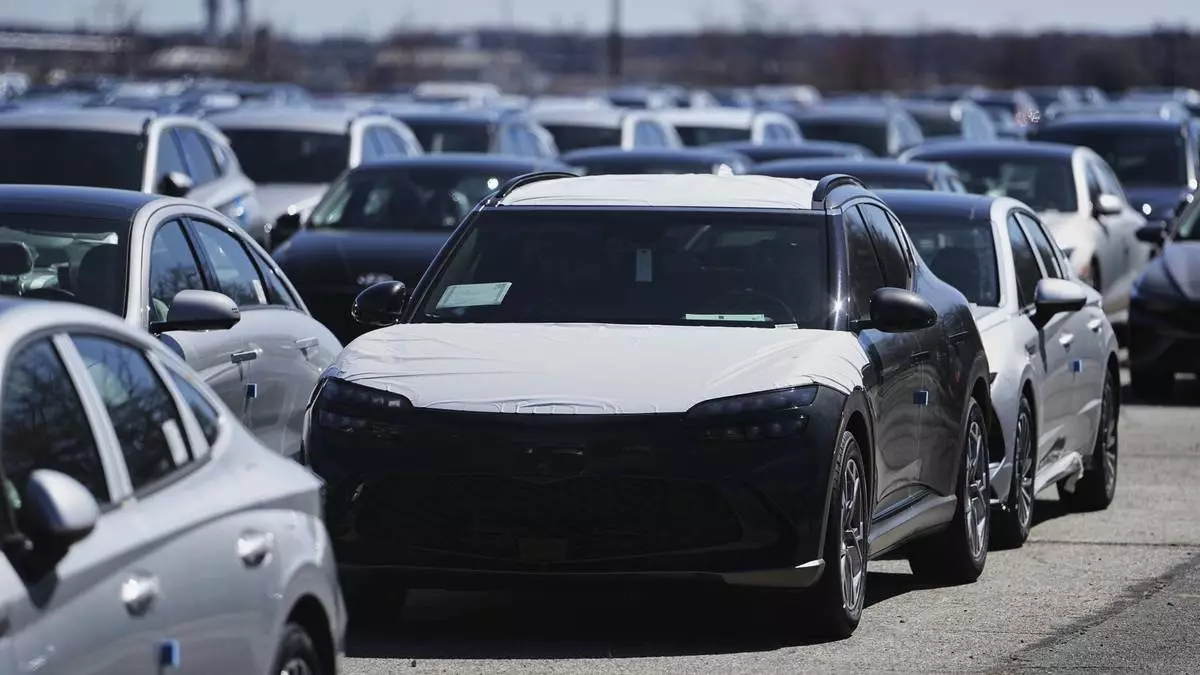
New Hyundai automobiles are parked at auto terminal in Philadelphia, Thursday, March 27, 2025. (AP Photo/Matt Rourke)
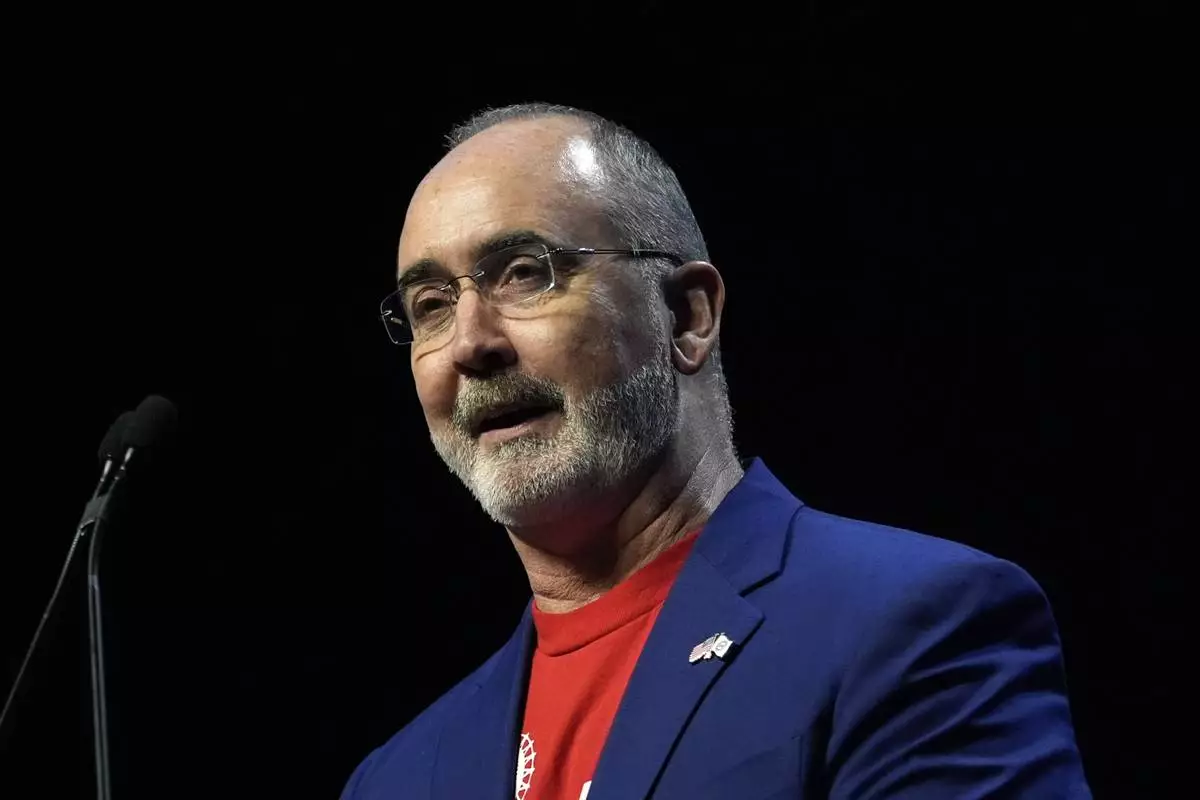
FILE - United Auto Workers President Shawn Fain speaks at an election night campaign party, Nov. 5, 2024, in Detroit. (AP Photo/Carlos Osorio, File)


